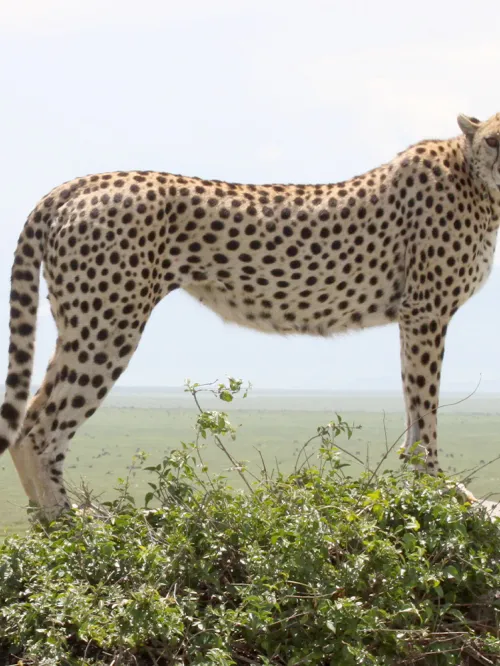Our work in Africa
Humane World for Animals tackles the root causes of animal cruelty and suffering to create permanent change. We make change at scale, advocating for policy change at all levels of government and working with companies so that they can be kinder to animals their businesses impact. We work in partnership with communities, bringing diverse expertise to the most complex issues, and doing it all with a compassionate and welcoming approach.
Our impact
We envision a world without animal cruelty, where humans and animals coexist peacefully. In Africa, we work to promote non-lethal solutions to human-wildlife conflicts, improve the lives of animals raised for food, end the illegal wildlife and captive big cat trade, advocate for a more plant-forward food system, increase access to spay/neuter services and primary veterinary care for companion animals, ending cosmetics animal testing and helping animals in disaster situations.
outside Kruger National Park have received an immunocontraceptive vaccine
have a permanent home at our sanctuary in Liberia
in South Africa have been sterilized through our Healthy Pets, Healthier Communities initiative
Latest News
Convention on International Trade in Endangered Species (CITES)
The international commercial wildlife trade is worth billions of dollars annually and has been responsible for the decline of wild populations of a number of species of animals and plants. The Convention on International Trade in Endangered Species of Wild Fauna and
Canada's Fur Industry
Every year in Canada, more than 3 million animals are killed by the fur industry. These animals suffer tremendously, all in the name of “fashion.” Two horrifying "harvesting" methods Although the fur industry does its best to keep the cruelty out of
Cat and Dog Fur in Canada
Since 1997, Humane Society International has investigated and documented the international trade in dog and cat fur. Our extensive, widely reported undercover investigation has spanned the globe from source countries such as China, the Philippines, and Thailand to retailers and wholesalers in
No Battery Eggs: Resources
Learn more about the cruelty of battery eggs and find resources to avoid them: Cage-Free Egg Production vs. Battery Cage Egg Production Scientists and Experts on Battery Cages [PDF] A Comparison of the Welfare of Hens in Battery Cages and Alternative Systems[PDF]
Lights Out Toronto
Migratory birds and city lights Every year, thousands of birds are injured or killed on migratory pathways when they became confused by city lights. Many more birds are killed by collisions with buildings than by oil spills. In fact, an estimated one
Gestation Crates in Canada
Each year in Canada, more than 1 million sows are subjected to some of the cruelest farming practices yet devised by the agriculture industry. These unfortunate animals are intensively confined throughout their pregnancies in metal stalls so small that the sows are
Foie Gras in Canada
Paté de foie gras, translated from French, means "fatty liver." This so-called gourmet delicacy is undeniably the product of extreme animal cruelty. Force-fed cruelty Factory foie gras farms intensively raise ducks and geese in large, enclosed barns. For the last few weeks
Basic Vegetarian Nutrition
J. Gabriel/Stock.xchng While studies have shown the many health benefits of vegetarian eating, merely removing animal products from your diet doesn’t automatically ensure good health. As with any eating plan, it’s important to know some basic nutrition information. Staying physically active, avoiding
Battery Cage Eggs
Battery-caged hens suffer terribly. HSI Worldwide, hundreds of millions of egg-laying hens are confined in small, wire enclosures known as battery cages. Battery cages are so cramped that the hens are unable to perform many important natural behaviors, including walking, perching, dust
Help us end animal cruelty
Start saving lives today by making a one-time gift—or protect animals worldwide all year long with a monthly contribution.
